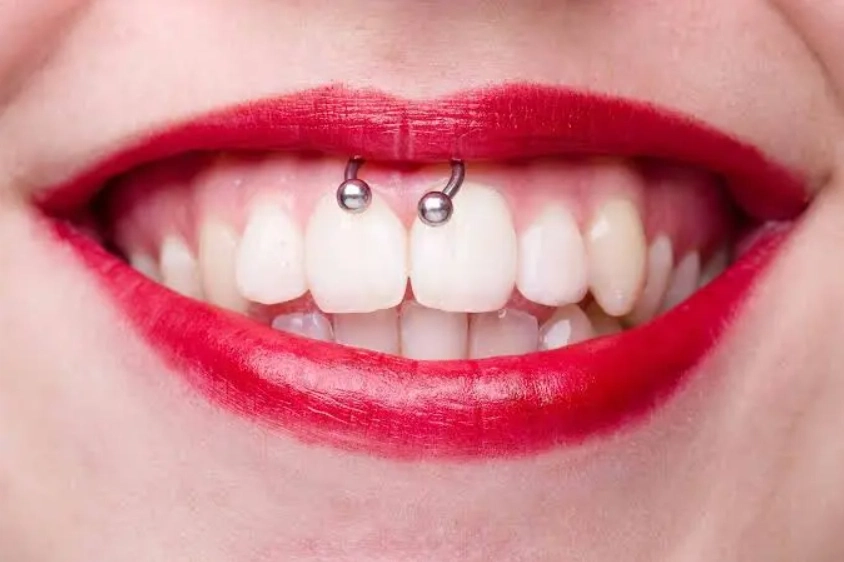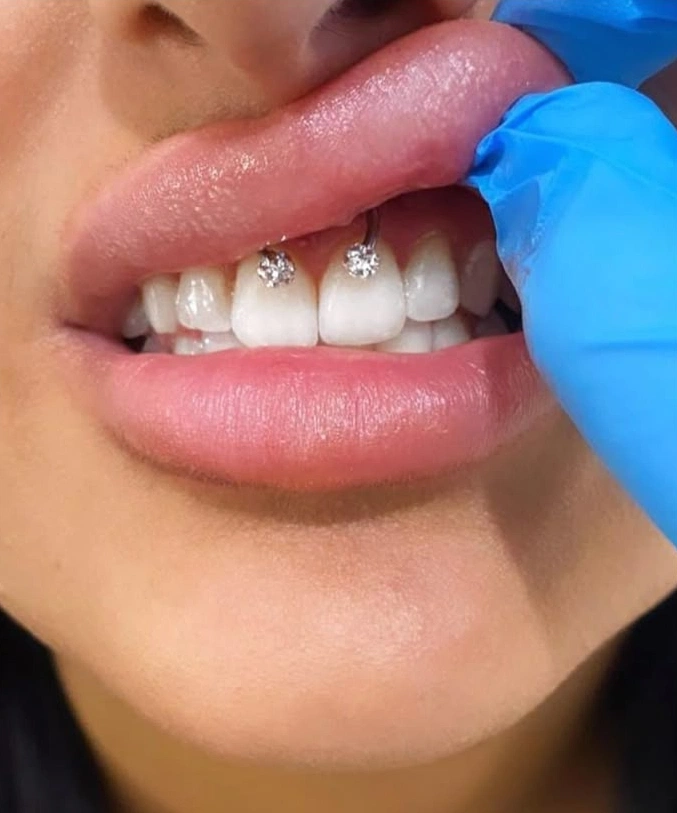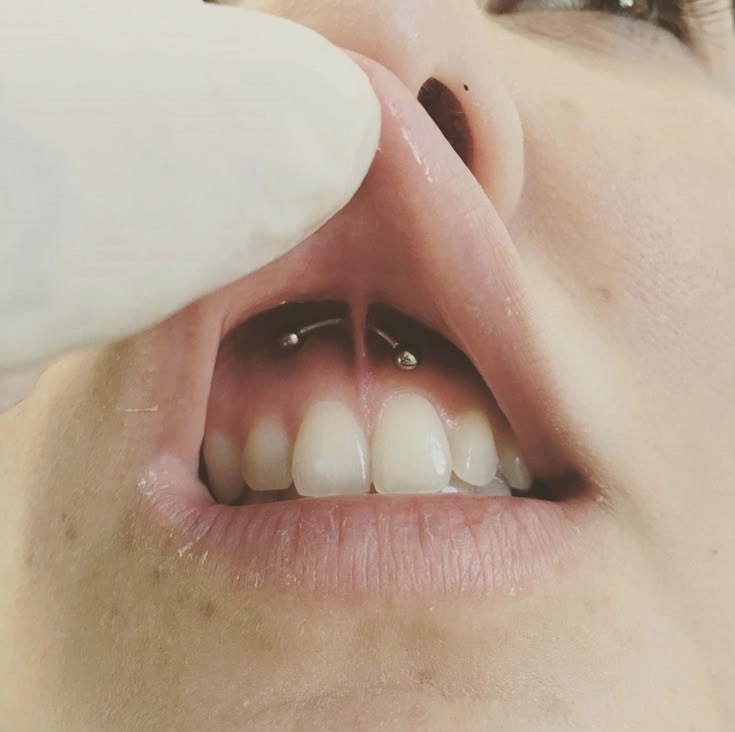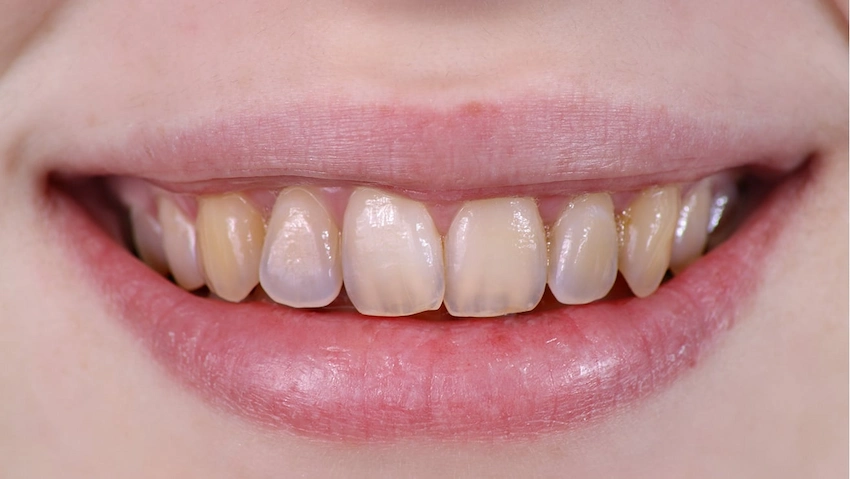🦷 Is a Smiley Piercing Harmful to the Gums?

A smiley piercing is one of the most amusing, yet weird, ideas that has lately been in the limelight, and it is nothing other than a small jewelry piece that is carried through the thin tissue (frenulum) that connects the inside of your upper lip to your gums. However, the more significant concern behind the popularity of the smiley piercing trend might be the question of whether the smiley piercing is harmful to the gums. The reply is not only yes or no, but even so, understanding the possible dangers before embracing this beauty trend becomes imperative.
Besides the point that our dental experts at Lema Dental Clinic in Istanbul have been the oral witnesses of all oral piercings – including smiley piercings, infecting oral hygiene, gum health, and tooth enamel, let’s take them one by one and see which are the causes behind each effect.
What Is a Smiley Piercing?
The content is short and to the point, as it describes the location of the smiley piercing – the upper lip frenulum – the small, thin tissue right between your upper lip and gums. When you grin, the adornment is at hand to view, thus the name “smiley.” In most cases, curved barbells, small captive bead rings, or circular barbells are used as types of body jewelry.
However, in this context, the practitioner can only perform a fairly short-term operation by a professional piercer, where the method of cutting through the delicate oral tissue is used. It is known that this is the spot where food, drinks, and saliva are constantly providing bacteria, as it is a highly exposed area. That is why the conditions of aftercare and hygiene are becoming more and more critical.
How Smiley Piercing Can Affect Your Gums

The smiley is indeed stylish and might not be overdone, but it still can be a source of various problems for the gums, and among them are the following:
1. Gum Recession
The jewelry that you wear in your mouth can rub against the gums, and after some time, the abrasions on the gum tissue can be so deep that the gums appear to recede. Apart from the fact that the tissue that surrounds the teeth will become less, it will not regenerate, so the teeth will be more prone to decay and will be sensitive.
2. Enamel Wear
One of the problems that arises from the constant rubbing between the metal of the jewelry and your teeth is the erosion of the enamel, which makes the teeth prone to cavities and will be sensitive.
3. Increased Risk of Infection
The mouth is a habitat for a wide range of bacteria, and any piercing in the mouth makes the area around it an open wound. If the area is not cleaned properly, it can give rise to microbial growth, swelling, and discomfort.
Signs Your Smiley Piercing Is Affecting Your Gum Health
Despite the fact that initially your piercing might feel good, you should be careful and look out for the following signs:
- Gum tenderness or redness around the upper front teeth
- Teeth are more sensitive than usual
- Visible gum line shrinkage
- A metallic taste or bad breath that is not resolved by brushing
- Jewelry is becoming loose, or tissue is growing over the jewelry
If you experience any of these symptoms, you need to visit a dentist without delay. Early action can stop the progression of gum disease.
How to Minimize Gum Damage from a Smiley Piercing

If you have a smiley piercing and still plan to get one, then be well informed and take the following steps to keep your gums safe:
- Get one that is small and smooth so that the metal will not rub against your gums, and you will be more comfortable.
- You should always keep very good oral hygiene. Besides brushing your teeth twice daily and flossing, also use an antibacterial mouthwash. It will make sure that all your teeth are thoroughly clean, and bacteria will be killed.
- Make an appointment for a dental examination regularly in order to keep track of periodontal health.
- During the dental treatment, take off your jewelry so that there won’t be any injuries while working on your dental area.
When to Consider Removing a Smiley Piercing
In case a dentist detects receding gums, worn enamel, or continuous irritation, it is better that the piercing is removed so that the trouble is not irreversible. At Lema Dental Clinic, we are the ones who give the patients the instructions about the removals, which are the safest ones, and the restoration alternatives that also include the gum grafting or composite bonding to repair the damage caused.
Final Thoughts
A smiley piercing may be a charming and stylish accessory; however, it is still not risk-free, especially when it comes to the health of the gums. The prolonged use of it is likely to cause the gingival recession, enamel damage, and infection. If you decide to go for it, take good care of it after the procedure and visit the dentist regularly.
Lema Dental Clinic in Istanbul is always at your service to keep your smile healthy, whether you have a piercing or not. Our team provides all the necessary treatment for your gums, professional cleanings, and gives you the advice that is most appropriate for your oral health protection in the future.
FAQ: Is a Smiley Piercing Harmful to the Gums?
Not completely. Over time, it can lead to gum recession and enamel wear, especially if aftercare is neglected.
The metal of the jewelry that comes in constant contact with your teeth can be the cause of enamel wear, thus making your teeth more sensitive and prone to decay.
Minor irritation can be reversed, but most cases of gum recession need a dentist’s intervention, such as a gum graft, to be treated.
Usually, it takes 4–12 weeks, but it also depends on the person’s oral hygiene and overall health.
Normally, the pain is quite low, but everyone’s resistance is different. The swelling and discomfort period usually occurs during the first few days.




